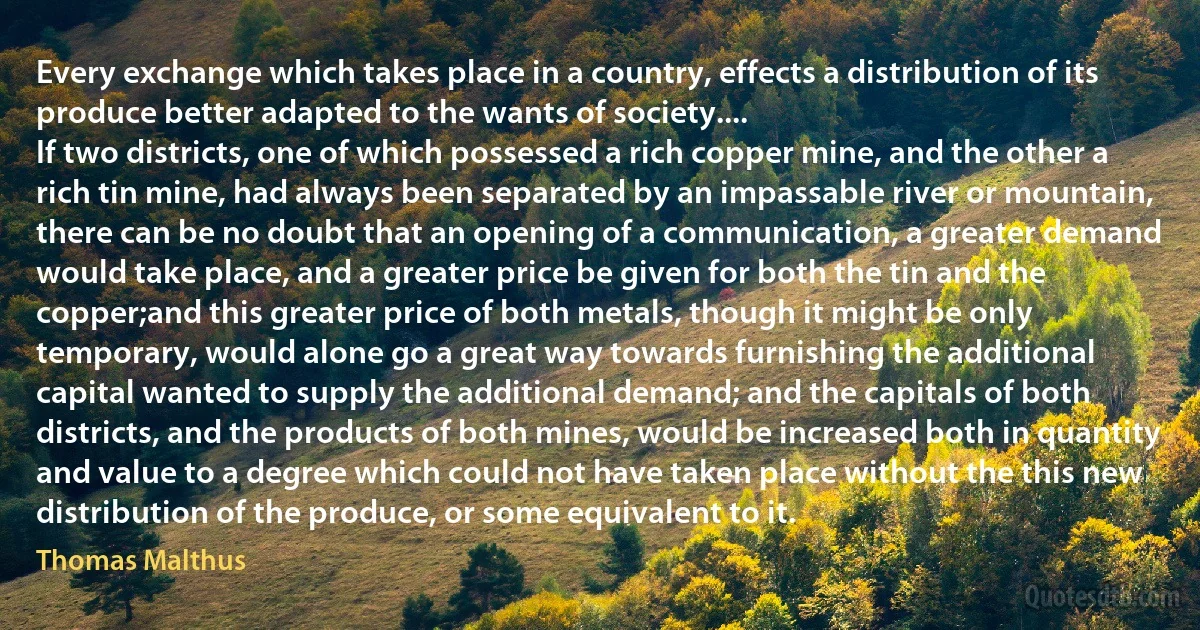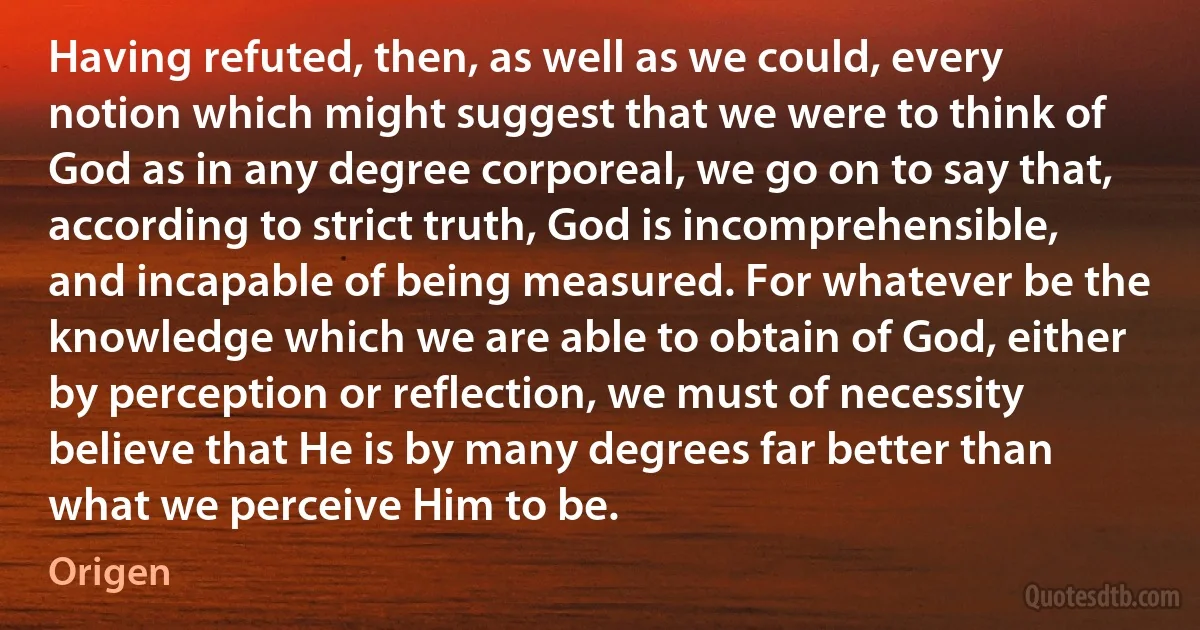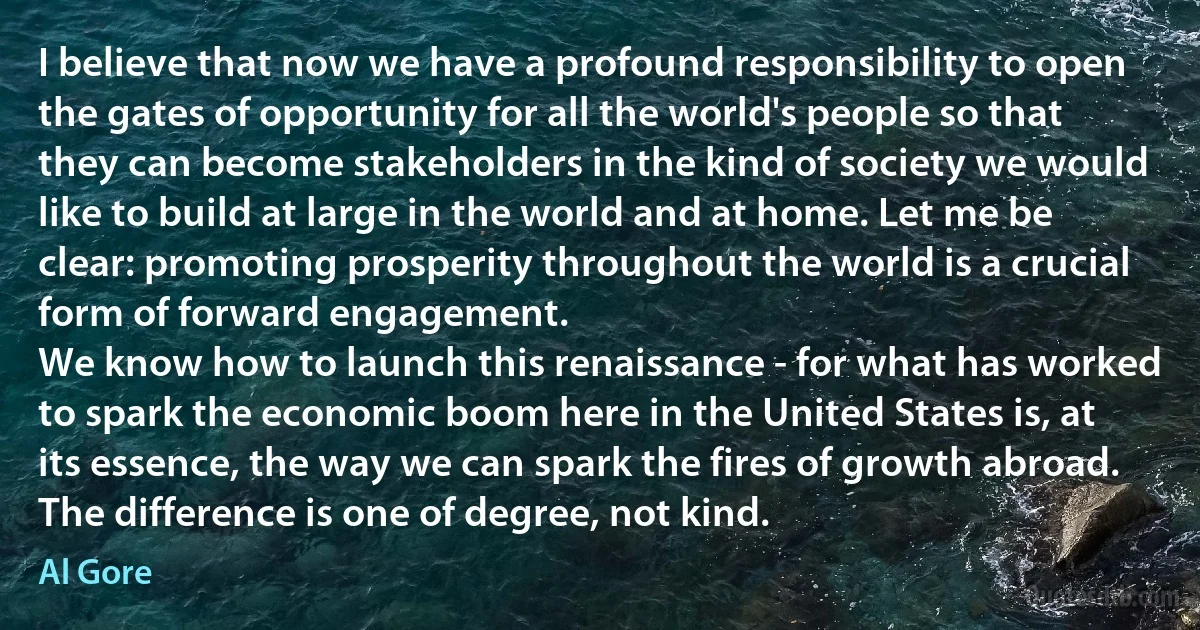Degree Quotes - page 68
I once met a pompous ass of a believer who had this religious-sense theory in an exaggerated degree. It is not at all my custom to obtrude the question of religion in conversation, but somebody maliciously tried to draw the man into debate about God with me. He would say nothing but, with comic solemnity: "I know there is a God." He would not explain further, but his meaning was clear. He felt it. He sensed it. And there is but one possible form in which he could have given precise expression to his actual experience. He was visibly annoyed, but still silent, when I put it. It is: "I have a strong conviction that God exists."

Joseph McCabe
The needs of a human being are sacred. Their satisfaction cannot be subordinated either to reasons of state, or to any consideration of money, nationality, race, or colour, or to the moral or other value attributed to the human being in question, or to any consideration whatsoever.
There is no legitimate limit to the satisfaction of the needs of a human being except as imposed by necessity and by the needs of other human beings. The limit is only legitimate if the needs of all human beings receive an equal degree of attention.

Simone Weil
What does Priestley mean, by an unbeliever, when he applies it to you? How much did he unbelieve himself? Gibbon had it right when he denominated his Creed, "scanty." We are to understand, no doubt, that believed the resurrection of Jesus, some of his miracles, his inspiration; but in what degree? He did not believe in the inspiration of the writings that contain his history. Yet he believed in the Apocalyptic beast, and he believed as much as he pleased in the writings of Daniel and John. This great and extraordinary man, whom I sincerely loved, esteemed, and respected, was really a phenomenon; a comet in the system, like Voltaire, Bolingbroke, and Hume. Had Bolingbroke or Voltaire taken him in hand, what would they have made of him and his Creed?

Joseph Priestley
For real dangers the people of England and Scotland form perhaps the bravest people in the world. At any rate, there is no people in the world to whom they are prepared to surrender or to whom one would ask them to surrender the palm of bravery. But I am sorry to say there is another aspect of the case, and for imaginary dangers there is no people in the world who in a degree is anything like the English in regard to being the victim of absurd and idle fancies. It is notorious all over the world. The French, we think, are an excitable people; but the French stand by in amazement at the passion of fear and fury into which an Englishman will get him when he is dealing with an imaginary danger.

William Ewart Gladstone
[B]oth the communist and fascists revolutions definitely abolished laissez-faire capitalism in favor of one or another kind and degree of state capitalism. In neither form, fascist or communist, did the masses, through any sort of democratic process, either as workers or citizens, control the basic means of production and distribution .

Norman Thomas
By an observation of an eclipse of one of Jupiter's satellites, on the night of the 25th of March, in latitude 350° 51' 30", I found that we were very near the 100th degree of longitude west from Greenwich. On the following day, therefore, we celebrated our entrance into the United States territory. Those who have never been beyond the purlieus of the land of their nativity, can form but a poor conception of the joy which the wanderer in distant climes experiences on treading once more upon his own native soil! Although we were yet far from the abodes of civilization, and further still from home, nevertheless the heart within us thrilled with exhilarating sensations; for we were again in our own territory, breathed our own free atmosphere, and were fairly out of reach of the arbitrary power which we had left behind us.

Josiah Gregg
The Indian system of chiefs, which still prevails, and is nearly the same everywhere, except with the Cherokees, Choctaws, Chickasaws, and the Creeks to a degree, seems to bear a strong resemblance to that of the patriarchs of old; which, with their clans so analogous to those of our forefathers, perhaps affords as strong a proof as any other of their Asiatic origin. To this might be added their mode of naming; for the Indians universally apply names significant of acts, qualities, beasts, birds, etc., to their offspring,- a practice which seems to have prevailed generally among the ancient Asiatics. Surnames have only been adopted by educated families and mixed bloods of the border nations, and are generally taken from their missionaries or some favorite friends; except they inherit surnames from parents of white extraction.

Josiah Gregg
The science of government being, therefore, so practical in itself, and intended for such practical purposes, a matter which requires experience, and even more experience than any person can gain in his whole life, however sagacious and observing he may be, it is with infinite caution that any man ought to venture upon pulling down an edifice which has answered in any tolerable degree for ages the common purposes of society, or on building it up again without having models and patterns of approved utility before his eyes.

Edmund Burke
To-day, with its forests pierced and open, its routes, its stations, it is in advance of all other African States. Take the French Congo, the German East Africa, Portuguese West Africa, and compare them. The Congo State prospers in a greater degree than any other part of the black continent.

Henry Morton Stanley
So, this is where the story comes from: an unnamed friend of an unnamed acquaintance of Sitaramayya knew of a manuscript, but he took the details of it with him in his grave. This hearsay in the third degree is the "document” on which secularist journalists and historians base their "evidence” of Aurangzeb's fair and secularist disposition. This is how they go about "exploding the myth” of Islamic iconoclasm. Their "debunking” of genuine history as preserved and presented by Hindu historians stands exposed as sheer bluff.

Koenraad Elst
Water and a bubble on it are one and the same. The bubble has its birth in the water, floats on it, and is ultimately resolved into it. So also the Jivatman (individual soul) and the Paramatman (supreme soul) are one and the same, the difference between them being only one of degree. For, one is finite and limited while the other is infinite; one is dependent while the other is independent. (22)

Ramakrishna
My belief is, that a wiser decision than that to which you came-to subject property to direct taxation within certain limits-to remove the prohibition upon foreign cattle-to permit swine and sheep to be imported-to reduce the duty on corn, on sugar, on lard, on butter, and on cheese-you never made. My belief is that you have been amply repaid for any loss you may have sustained by that reduction; that you have gained the confidence and goodwill of the labouring classes in this country, by parting with that which was thought to be directly for the benefit of the landed interest. It was that confidence in the generosity and justice of Parliament which in no small degree enabled you to pass triumphantly through that storm which convulsed other nations during the year 1848.

Robert Peel
In the vast all of the Universe, must there be this unique anomaly - a consciousness that knows itself, loves itself and feels itself, joined to an organism which can only live within such and such degrees of heat, a merely transitory phenomenon? No, it is not mere curiosity that inspires the wish to know whether or not the stars are inhabited by living organisms, by consciousness akin to our own, and a profound longing enters into that dream that our souls shall pass from star to star through the vast spaces of the heavens, in an infinite series of transmigrations. The feeling of the divine makes us wish and believe that everything is animated, that consciousness, in a greater or less degree, extends through everything. We wish not only to save ourselves, but to save the world from nothingness. And therefore God. Such is his finality as we feel it.

Miguel de Unamuno
Suffering is a spiritual thing. It is the most immediate revelation of consciousness, and it may be that our body was given us simply in order that suffering might be enabled to manifest itself. A man who had never known suffering, either in greater or less degree, would scarcely possess consciousness of himself. The child first cries at birth when the air, entering into his lungs and limiting him, seems to say to him: You have to breathe me in order to live!

Miguel de Unamuno
She was a splendid pianist, playing with a touch and expression that were simply superb. Her hands were models-ideal and actual-for a sculptor and never seen to such advantage as when flying over the keyboard to find its magical melodies... There were times when she was occupied by one of the Mahâtmas, when her playing was indescribably grand. She would sit in the dusk sometimes, with nobody else in the room beside myself, and strike from the sweettoned instrument improvisations that might well make one fancy he was listening to the Gandhâvas, or heavenly choristers. It was the harmony of heaven...she was loyal to the last degree to her aunt, her other relatives, and to the Masters; for whose work she would have sacrificed not only one, but twenty lives, and calmly seen the whole human race consumed with fire, if needs be.

Helena Petrovna Blavatsky
6 says, "Tina's doing an arts degree.”
"Oh?” I say, as if the eyebrow ring, blond hair with a streak of black and oppressive eye makeup hadn't tipped me off.
"Oh, let me guess,” Tina says. "He's a marketer.”
"Hi,” I say.
..."I hope they pay you well for strangling the youth of this country with cultural conformity.”.

Max Barry
Gilbert does not seem to have known that there were any other bodies than iron or the lodestone that possessed magnetic properties; for he called particular attention to the fact that all other substances that possessed magnetism to some degree owe their power to the presence of iron in some condition or other.

William Gilbert (astronomer)
I originated a remark many years ago that I think has been copied more than any little thing that I've every said, and I used it in the FOLLIES of 1922. I said America has a unique record. We never lost a war and we never won a conference in our lives. I believe that we could without any degree of egotism, single-handed lick any nation in the world. But we can't confer with Costa Rica and come home with our shirts on.

Mike Jones
From the Colchester Grammar-School, when eighteen years of age, he went, in 1819, to Trinity College, Cambridge. Three years afterward he was elected to a scholarship. In 1823, on his graduating B. A., young Airy came out as Senior Wrangler. In 1824 he obtained his fellowship at Trinity. His degree of M. A. was taken in 1826, and he was simultaneously elected, though only then in his twenty-fifth year, as Lucasian Professor at Cambridge. Illustrious philosophers like Barrow and Newton had preceeded him... Latterly, however, the office had become, in a great measure, purely honorary, and might also be said to have degenerated into a sinecure.

George Biddell Airy
The ruling feature of his character was undoubtedly Order. ...He seems not to have destroyed a document of any kind whatever: counterfoils of old cheque-books, notes for tradesmen, circulars, bills, and correspondence of all sorts were carefully preserved in the most complete order... To a high appreciation of order he attributed in a great degree his command of mathematics, and sometimes spoke of mathematics as nothing more than a system of order carried to a considerable extent. In everything he was methodical and orderly, and he had the greatest dread of disorder creeping into the routine work of the Observatory, even in the smallest matters.

George Biddell Airy
Heart, my heart, so battered with misfortune far beyond your strength,
up, and face the men who hate us. Bare your chest to the assault
of the enemy, and fight them off. Stand fast among the beamlike spears.
Give no ground; and if you beat them, do not brag in open show,
nor, if they beat you, run home and lie down on your bed and cry.
Keep some measure in the joy you take in luck, and the degree you
give way to sorrow. All our life is up-and-down like this.
Fragment 67, as translated by R. Lattimore.

Archilochus



